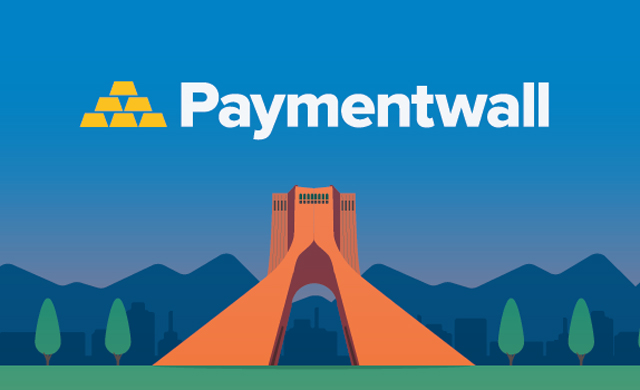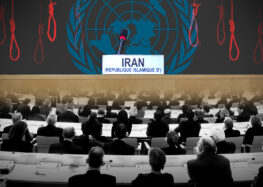Iranians May Soon Be Able to Make International Online Transactions

Denials Raise Questions Over Whether Deal Will Go Through
A global payment service provider based in the U.S. has announced that it has made its platform available to Iranians, enabling them to make international online transactions, which was previously almost impossible. But a representative from the Central Bank of Iran reportedly denied the announcement, raising questions over whether the deal would be completed.
Two days after the initial press release was posted on Paymentwall’s website on April 13, 2016, it was deleted and followed by another press release published on April 15 stating that the digital commerce solutions provider had teamed up with an Iranian company, Shetab, so International businesses could accept credit and debit card payments in the rial, Iran’s currency.
“With nuclear sanctions lifted from Iran, Paymentwall integrated Shetab (interbank information transfer network system),” said the press release. “Shetab is a unified, electronic clearance system for the entire Iranian banking operations that allows it to facilitate transactions from credit cards, ATMs and point-of-sale (POS) terminals.”
“International businesses will soon be able to accept credit and debit card payments in Iranian rial (IRR) through Shetab,” noted the press release.
“Though the integration is complete, Paymentwall will ensure first that it complies with the most up-to-date regulations from the U.S. Department of the Treasury before it moves forward with Shetab,” added the announcement.
But the potentially historic news was quickly denied by Davoud Mohammad Beigi, the manager of payment systems of the Central Bank of Iran, according to a report by the semi-official Mehr News Agency.
“…The Central Bank has not held any negotiations with Paymentwall over this issue,” said the Mehr report on April 18, 2016, which did not include any direct quotes from Beigi.
“Managers of other companies active in electronic banking also said the connection of Shetab to Paymentwall cannot happen without coordination with the Central Bank, and this needs to be pursued at a macro level by officials at the Central Bank of Iran,” continued the Mehr News report.
Paymentwall has not responded to a request for comment from the International Campaign for Human Rights in Iran, but a story published on another website following the initial April 13 press release, which was later removed, was updated with a comment from Paymentwall.
“We integrated Shetab as a new payment partner, allowing users to pay, but we are not connected to the Iranian banking system,” said Paymentwall, according to an article published on the Banking Technology website on April 13, 2016.
“We will allow users from Iran to pay with Shetab, but we still can’t work with Iranian businesses as of now,” it added.
“We do not cater to [the] Iranian Finance Market yet,” said Paymentwall on April 13, in response to questions on its official Facebook page. “Although we [will] look in to this as one of our plans in the future.”
“We have postponed the launching of our services in Iran to make sure we are compliant with the regulations in your country,” added Paymentwall on April 17, 2016, in response to another question citing the Paymentwall press release saying it would soon be catering to the Iranian market.
The fact that Paymentwall has not updated or removed its April 15 press release to address the reported Iranian denials suggests that the deal may have run into domestic Iranian politics, but hasn’t completely fallen through as of yet.
As foreign businesses enter Iran, domestic providers will be forced to deal with a new form of competition that could wipe them out. Various domestic actors with stakes and interests in the Iranian market are expected to attempt to block foreign businesses from entering the market.
Following its implementation, Paymentwall’s service would essentially connect Iranians to the global online market while allowing purchases in the rial.
Domestic electronic banking services have been available for Iranians since 2002 through Shaparak, an Iranian company. The service enables customers to make electronic and online purchases and cash withdrawals with credit and debit cards issued by local banks.
But U.S. economic sanctions imposed on Iran due to its nuclear program in 2010 made it next to impossible for Iranians to make online transactions outside the country. Prior to that time, Iranians couldn’t obtain internationally recognized credit cards, so online transactions were never easy.
With Paymentwall, which supports 130 types of credit cards and payment methods in 180 countries, Iranian businesses would also be able to buy and sell goods and services internationally.
Exactly when Iranians will be able to use the service is unclear. In addition to domestic Iranian politics that could delay the deal, worries about violating remaining U.S. sanctions on Iran have also resulted in foreign businesses waiting to initiate or slowing down deals to ensure compliance.
“Our company is based in the U.S., and following the regulations of the U.S. Department of the Treasury is important to us,” said Honor Gunday, CEO of Paymentwall. “With a highly-educated population, we believe that Iran has a strong business potential, and hopefully we will be able to go live with Shetab soon.”






